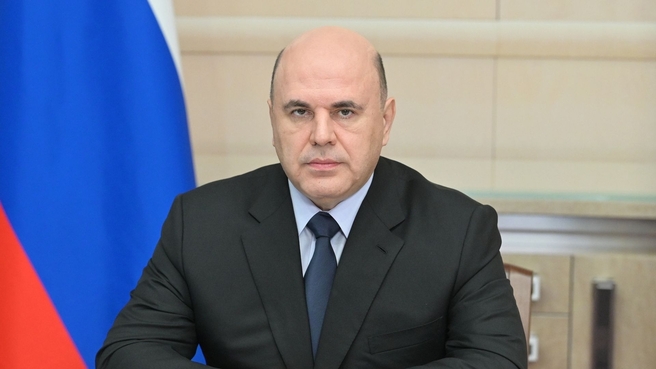The meeting was held via videoconference.
Mikhail Mishustin’s opening remarks:
Good afternoon, colleagues,
Today, we will analyse the fulfilment of
presidential instructions and the resolution of issues by working groups.
Specific targets have been formulated,
approved and accepted for execution.
The Government has also listed federal
agencies that can fulfil state procurement contracts for the needs of the
special military operation from sole providers under a simplified procedure.
This will enable them to purchase uniforms, gear and other goods more quickly,
to promptly repair equipment, and to accomplish tasks linked with the state’s
defence and security.
All agencies should promptly update
production plans, and clarify and adjust them on time, in line with incoming
requests.
There are already positive trends with regard
to missile and artillery systems and personal protective equipment. At the same
time, we are building facilities and installing the required utility mains
there. We are also providing the required budgetary funding.
Colleagues, it is highly important that we
monitor the fulfilment of planned targets and tasks. Once again, I am drawing
your attention to the fact that the Coordination Council does not provide a
substitute for the activities of the executive agencies. It streamlines their
interaction in specific fields and coordinates ties between the Armed Forces
and the production sector.
We have approved a number of additional
social measures, including in the field of pension support. People taking part
in the special military operation will be entitled to higher non-contributory
pensions, with the time they spend in service being considered as 100 percent
longer than it actually was. The same calculations will apply during the
allocation of early retirement pensions for those who had worked in the Extreme
North prior to mobilisation and for former employees of hazardous production
facilities.
I would like to note once again that the
Government has already decided that labour contracts with such persons will not
be annulled, and that they will be able to resume work at their respective
enterprises or companies after being discharged.
Our defenders must be assured that they will
not lose their jobs and incomes. In turn, the state will do its best to provide
them with essential guarantees.
The Government has supported a legislative initiative
by State Duma deputies that deals with retired service personnel wishing to
resume military service. We suggest improving social security measures, so that
they will retain their pensions if they obtain positions with lower pay grades
during the special military operation.
Colleagues, we need to involve more
enterprises, including representatives of small and medium-sized businesses, in
equipment and material deliveries.
Specialised enterprises manufacture required classified
products alone, while private companies can produce the rest. With this in
mind, we need to provide them with technical requirements, specifications and
production records. Indeed, many of them are willing to help, and their
initiative will assist in meeting demand in the most diverse fields, including
uniforms, personal protective equipment, and other products.
At our current meeting, I would like to ask
the heads of working groups, namely, Denis Manturov, Marat Khusnullin and
Tatyana Golikova, to report on their efforts to implement targets.
I would like to ask Defence Minister Sergei
Shoigu and the heads of the Interior Ministry, the National Guard (Rosgvardiya)
and the Federal Security Service to report on the resolution of their subordinate
agencies’ logistic support issues.
First Deputy Minister of Finance Leonid
Gornin will report on federal budget spending during the special military
operation and on proposals to monitor these resources.













